Are you considering getting a German Spaniel as your furry companion? If so, you’re in for a treat! German Spaniels, also known as Deutscher Wachtelhund, are a versatile and loyal breed that make great pets for active families. They are known for their hunting skills and love of the outdoors, but they also have a gentle and affectionate temperament that makes them ideal for households with children. In this article, we’ll explore the characteristics and traits of the German Spaniel breed to help you decide if this is the right dog for you.
Breed Category: Gundog
Country of Origin: Germany
Average Size:50-60 cm
Average Weight:20-30 kg
Average Life Span: 12-14 years
Grooming Requirements: Moderate
Exercise Requirements:High
History and Origin
The German Spaniel, also known as the Deutscher Wachtelhund, is a versatile hunting dog breed that originated in Germany. The breed was developed in the late 19th century by crossing various spaniel breeds with the German Stoberhund, a type of pointing dog. The result was a dog that was well-suited for hunting in a variety of terrains, including water and dense cover.
The German Spaniel was originally bred to hunt game birds, such as pheasants and partridges, but it was also used for tracking and retrieving larger game, such as deer and wild boar. The breed’s versatility made it a popular choice among German hunters, and it quickly gained a reputation as a skilled and reliable hunting dog.
In the early 20th century, the German Spaniel was recognized as a distinct breed by the German Kennel Club. The breed standard was established, and efforts were made to promote and preserve the breed. However, the breed suffered during World War II, and its numbers declined significantly. After the war, dedicated breeders worked to rebuild the breed, and today the German Spaniel is once again a popular hunting dog in Germany and other parts of Europe.
The German Spaniel is a medium-sized dog, typically weighing between 40 and 60 pounds. It has a dense, water-repellent coat that can be either wavy or curly. The breed’s coat is usually brown or liver-colored, with white markings on the chest and feet. The German Spaniel is a muscular and athletic dog, with a strong nose and excellent hunting instincts.
One of the unique features of the German Spaniel is its ability to track and retrieve game both on land and in water. The breed is an excellent swimmer, and it is often used to retrieve waterfowl and other game from lakes and rivers. The German Spaniel is also a skilled tracker, and it can follow a scent trail for miles.
In addition to its hunting abilities, the German Spaniel is also a loyal and affectionate companion. The breed is known for its friendly and outgoing personality, and it is often used as a family pet. However, the German Spaniel is an active dog that requires plenty of exercise and mental stimulation, so it is best suited for families that can provide it with plenty of opportunities to run, play, and hunt.<br

Size and Breed Category
The German Spaniel is a medium-sized breed of dog that typically weighs between 20-30 kilograms and stands at a height of 52-62 centimeters at the shoulder. They have a muscular build and a thick, wavy coat that can come in a variety of colors, including black, liver, and roan. Their ears are long and droopy, and their tails are typically docked. German Spaniels are known for their high energy levels and athleticism, making them well-suited for activities such as hunting, agility, and obedience training. They are also known for their intelligence and loyalty, making them excellent family pets.
The German Spaniel is classified as a sporting breed, which means they were originally bred for hunting and retrieving game. They are closely related to other spaniel breeds, such as the English Springer Spaniel and the Cocker Spaniel. German Spaniels are known for their excellent sense of smell and their ability to work in a variety of terrains, including water. They are also known for their friendly and outgoing personalities, which make them popular pets and companions. However, due to their high energy levels and need for exercise, they may not be the best choice for first-time dog owners or those who live in small apartments.
Fur Length and Colour
The fur of the German Spaniel is typically medium in length, with a dense undercoat and a slightly wavy topcoat. The fur is soft to the touch and provides excellent insulation, making it well-suited for colder climates. The fur on the ears, chest, and legs is slightly longer than on the rest of the body, giving the dog a distinctive appearance. German Spaniels come in a variety of colours, including black, liver, and roan. Some dogs may also have white markings on their chest and feet. The fur colour is usually solid, but some dogs may have small patches of a different colour. Overall, the fur of the German Spaniel is both functional and attractive, making it a popular choice for dog owners.
The German Spaniel’s fur colour can vary widely, but it is typically rich and vibrant. Black German Spaniels have a glossy, jet-black coat that is striking against their bright eyes and pink nose. Liver-coloured dogs have a deep, chocolate-brown coat that is equally eye-catching. Roan-coloured dogs have a mix of white and black or liver hairs, giving them a speckled appearance. The colour of the fur can also change slightly as the dog ages, with some dogs developing more white hairs as they get older. Regardless of the colour, the fur of the German Spaniel is always soft and silky, making it a pleasure to pet and groom.
Termperament and Trainability
German Spaniels are known for their high energy levels and lively temperament. They are a breed that thrives on human interaction and are very social animals. They are also highly intelligent and have a strong desire to please their owners. This makes them very trainable and they excel in obedience training and agility competitions. However, their high energy levels can sometimes make them difficult to handle, especially for inexperienced owners. It is important to provide them with plenty of exercise and mental stimulation to keep them happy and healthy.
In terms of trainability, German Spaniels are highly responsive to positive reinforcement training methods. They are quick learners and are eager to please their owners. They are also very adaptable and can be trained to perform a wide range of tasks, from hunting and retrieving to search and rescue work. However, they can be stubborn at times and may require a firm and consistent approach to training. It is important to establish clear boundaries and rules from an early age to prevent any unwanted behaviour. Overall, German Spaniels are a highly trainable breed that requires plenty of patience, consistency and positive reinforcement to reach their full potential.
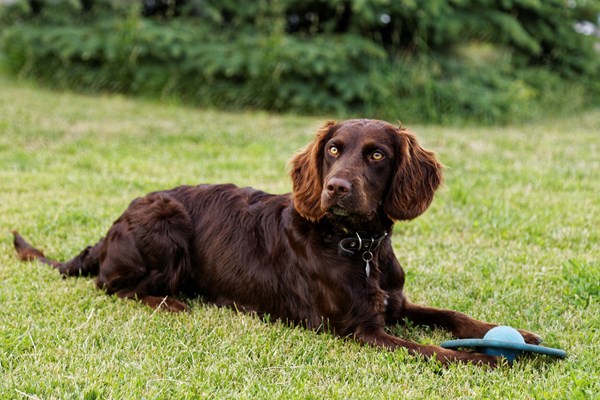
Known Health Conditions
German Spaniels are prone to a number of health conditions, including hip dysplasia, which is a genetic condition that affects the hip joint. This can cause pain and discomfort, and in severe cases, can lead to arthritis. German Spaniels may also be prone to ear infections, which can be caused by their long, floppy ears that can trap moisture and bacteria. Regular cleaning and maintenance of the ears can help prevent infections. Additionally, German Spaniels may be at risk for eye problems such as cataracts and progressive retinal atrophy, which can lead to blindness. Regular eye exams can help detect and manage these conditions.
Another health concern for German Spaniels is obesity, which can lead to a range of health problems such as diabetes, heart disease, and joint pain. Owners should monitor their dog’s diet and exercise to ensure they maintain a healthy weight. German Spaniels may also be prone to skin allergies, which can cause itching, redness, and hair loss. Identifying and avoiding allergens can help manage these allergies. Finally, German Spaniels may be at risk for certain types of cancer, such as lymphoma and hemangiosarcoma. Regular check-ups with a veterinarian can help detect and treat these conditions early.
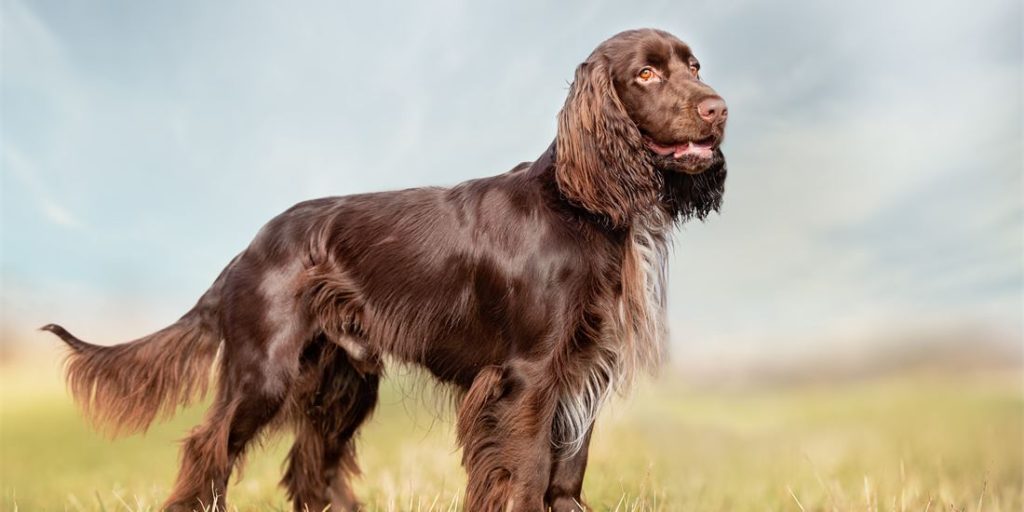
Openness to Strangers
German Spaniels are known for their friendly and welcoming nature towards strangers. They are a breed that is always eager to meet new people and make new friends. This trait makes them excellent companions for families with children or those who frequently have guests over. German Spaniels are also known to be very sociable with other dogs, making them a great choice for multi-dog households. Their open and friendly nature makes them a popular choice for those looking for a loyal and loving companion.
In addition to their friendly nature, German Spaniels are also known for their intelligence and trainability. They are quick learners and respond well to positive reinforcement training methods. This makes them an excellent choice for those who are looking for a dog that is easy to train and eager to please. German Spaniels are also known for their high energy levels and love of exercise. They require daily exercise and mental stimulation to keep them happy and healthy. Overall, German Spaniels are a great choice for those looking for a friendly, intelligent, and active companion.
Playfulness Level
The German Spaniel is a highly energetic and playful breed of dog. They are known for their love of play and their ability to keep their owners entertained for hours on end. Whether it’s playing fetch, chasing after a ball, or simply running around in circles, these dogs are always up for a good time. They are also very social animals and enjoy spending time with their owners and other dogs. This makes them a great choice for families with children or other pets.
Despite their playful nature, German Spaniels are also very intelligent and trainable. They are quick learners and respond well to positive reinforcement training methods. This makes them a great choice for owners who want a dog that is both fun-loving and easy to train. However, it’s important to remember that these dogs have a lot of energy and require plenty of exercise and mental stimulation to stay happy and healthy. Owners who are willing to provide their German Spaniel with plenty of playtime and attention will be rewarded with a loyal and loving companion.
Suitability as a Pet for Children
German Spaniels, also known as Deutscher Wachtelhund, have a friendly and affectionate nature, making them a great choice as a pet for children. They are highly intelligent and easy to train, which makes them an ideal companion for families with young children. German Spaniels are also known for their loyalty and protective instincts, which means they will always keep a watchful eye over their family. They are a medium-sized breed, with a muscular build and a thick coat that requires regular grooming. German Spaniels are active dogs that require plenty of exercise, so they are best suited to families with a garden or access to outdoor space.
Exercise Needs
German Spaniels require a moderate amount of exercise to maintain their physical and mental health. As an active breed, they enjoy daily walks and runs, as well as engaging in activities such as swimming, hiking, and playing fetch. It is important to note that German Spaniels have a high prey drive, so they should always be kept on a leash or in a secure area when outside. Additionally, they benefit from mental stimulation through training and interactive toys. Regular exercise and mental stimulation can help prevent destructive behaviors and promote a happy, healthy German Spaniel.
While German Spaniels do not require as much exercise as some other breeds, they still need daily activity to prevent obesity and maintain their overall health. A lack of exercise can lead to weight gain, joint problems, and behavioral issues. It is recommended that German Spaniels receive at least 30-60 minutes of exercise per day, depending on their age and activity level. Owners should also be aware of their dog’s individual needs and adjust their exercise routine accordingly. Overall, regular exercise is essential for the physical and mental well-being of German Spaniels.
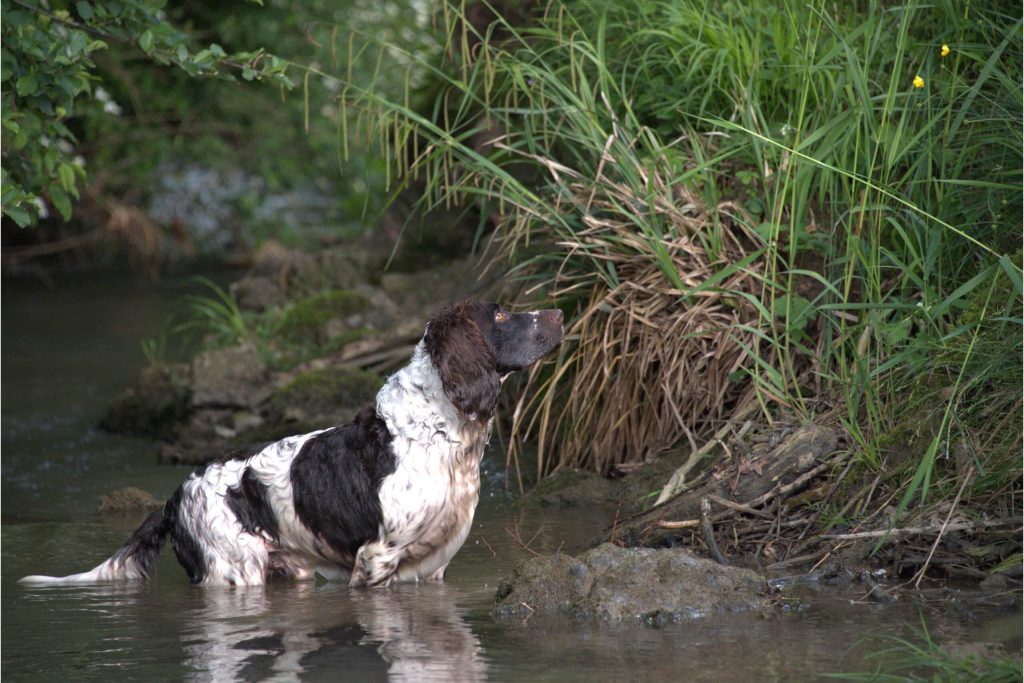
Suitability for a Multi-Pet Family
German Spaniels have a reputation for being friendly and sociable with other pets. They are known to be particularly good with other dogs, often enjoying playtime and socializing with their furry friends. However, as with any breed, individual personalities can vary, and some German Spaniels may not get along with certain pets. It is important to introduce any new pets slowly and carefully, and to supervise their interactions until you are confident that they are getting along well.

Housing Requirements
German Spaniels require a living space that is large enough to accommodate their active nature. They are a breed that enjoys being outdoors and require regular exercise to maintain their physical and mental health. A garden or yard is ideal for them to run around in, but they also need to be taken on daily walks to explore their surroundings. It is important to note that German Spaniels are prone to separation anxiety, so they should not be left alone for long periods of time. A home with a family that can provide them with attention and affection is ideal for this breed.
In terms of sleeping arrangements, German Spaniels require a comfortable and warm bed to rest in. They are a breed that enjoys snuggling up and being close to their owners, so a bed in the same room as their family is ideal. It is important to ensure that their sleeping area is clean and free from any hazards that could harm them. German Spaniels also require regular grooming to maintain their coat, so a designated area for grooming is also recommended. Overall, German Spaniels require a home that can provide them with plenty of love, attention, and space to explore and play.
Summary
German Spaniels make great pets for active families who enjoy spending time outdoors. They are known for their high energy levels and love of exercise, making them ideal companions for those who enjoy hiking, running, or playing fetch. They are also highly intelligent and trainable, making them a good choice for those who are willing to put in the time and effort to properly train and socialize their pet. German Spaniels are loyal and affectionate, and thrive on human companionship, making them a great addition to any loving home.
German Spaniel Dog FAQS
Yes, German Spaniels are intelligent and eager to please, making them relatively easy to train.
Yes, German Spaniels are known to be great with children and make excellent family pets.
German Spaniels can be prone to hip dysplasia, ear infections, and eye problems. Regular vet check-ups are recommended.
While German Spaniels can adapt to apartment living, they require plenty of exercise and outdoor time. A house with a yard is ideal.
Yes, German Spaniels are an active breed and require at least 1-2 hours of exercise per day.
Yes, German Spaniels have a thick, double coat and shed moderately throughout the year.
German Spaniels should be brushed at least once a week and bathed every 2-3 months. Their ears should also be checked and cleaned regularly.
A German Spaniel can grow up to 50-58 cm in height.
The average weight of a German Spaniel is between 18-25 kg.
The average lifespan of a German Spaniel is 12-14 years.


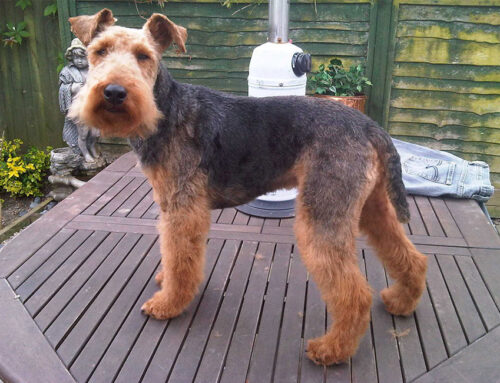
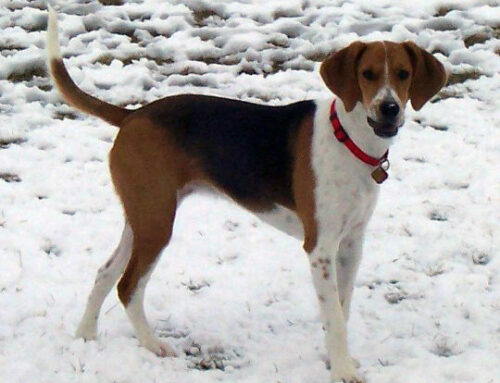
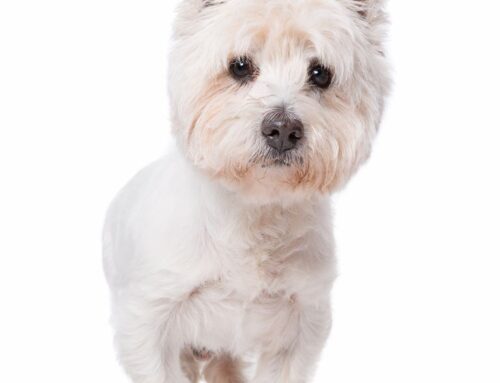
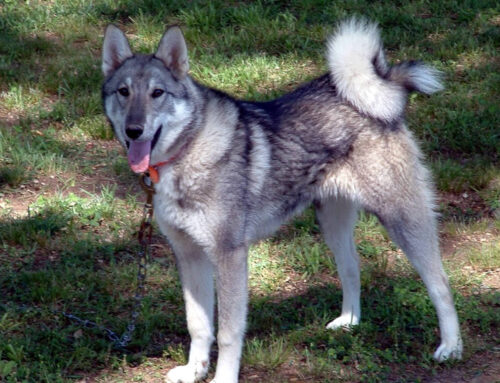
Leave A Comment